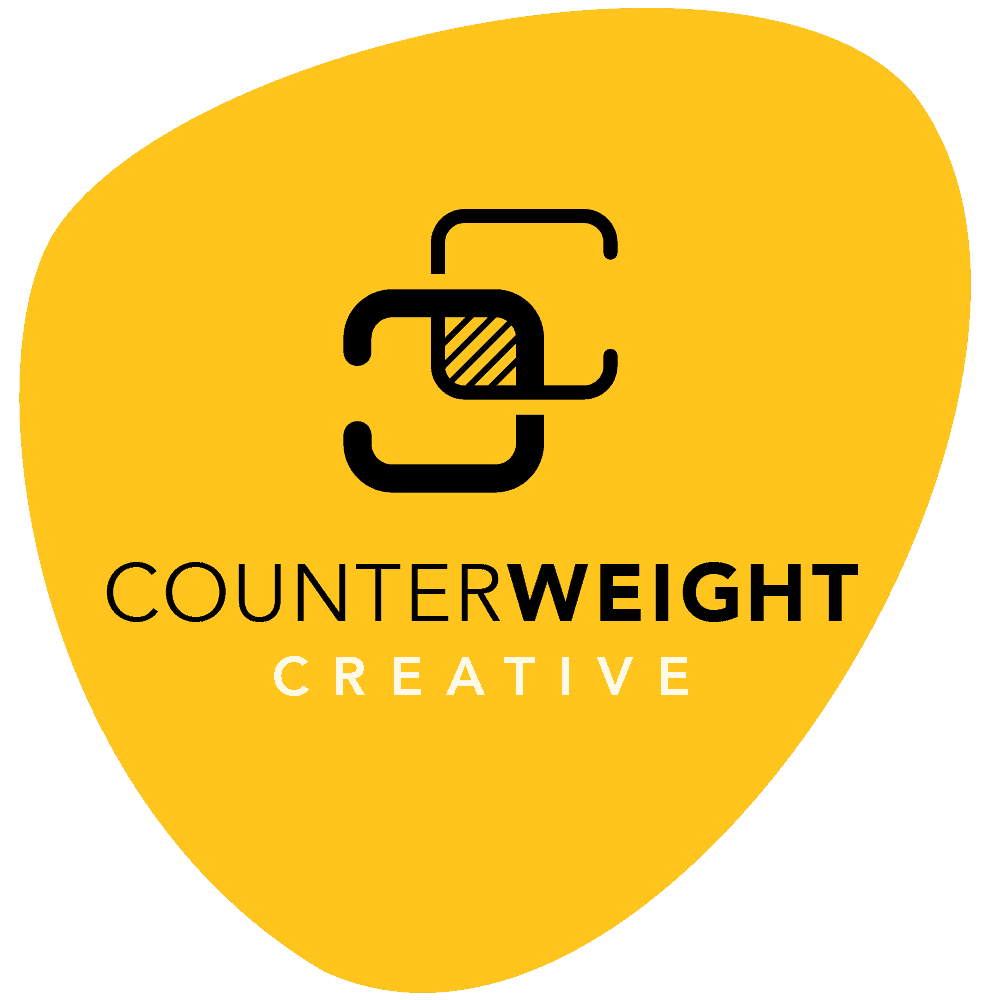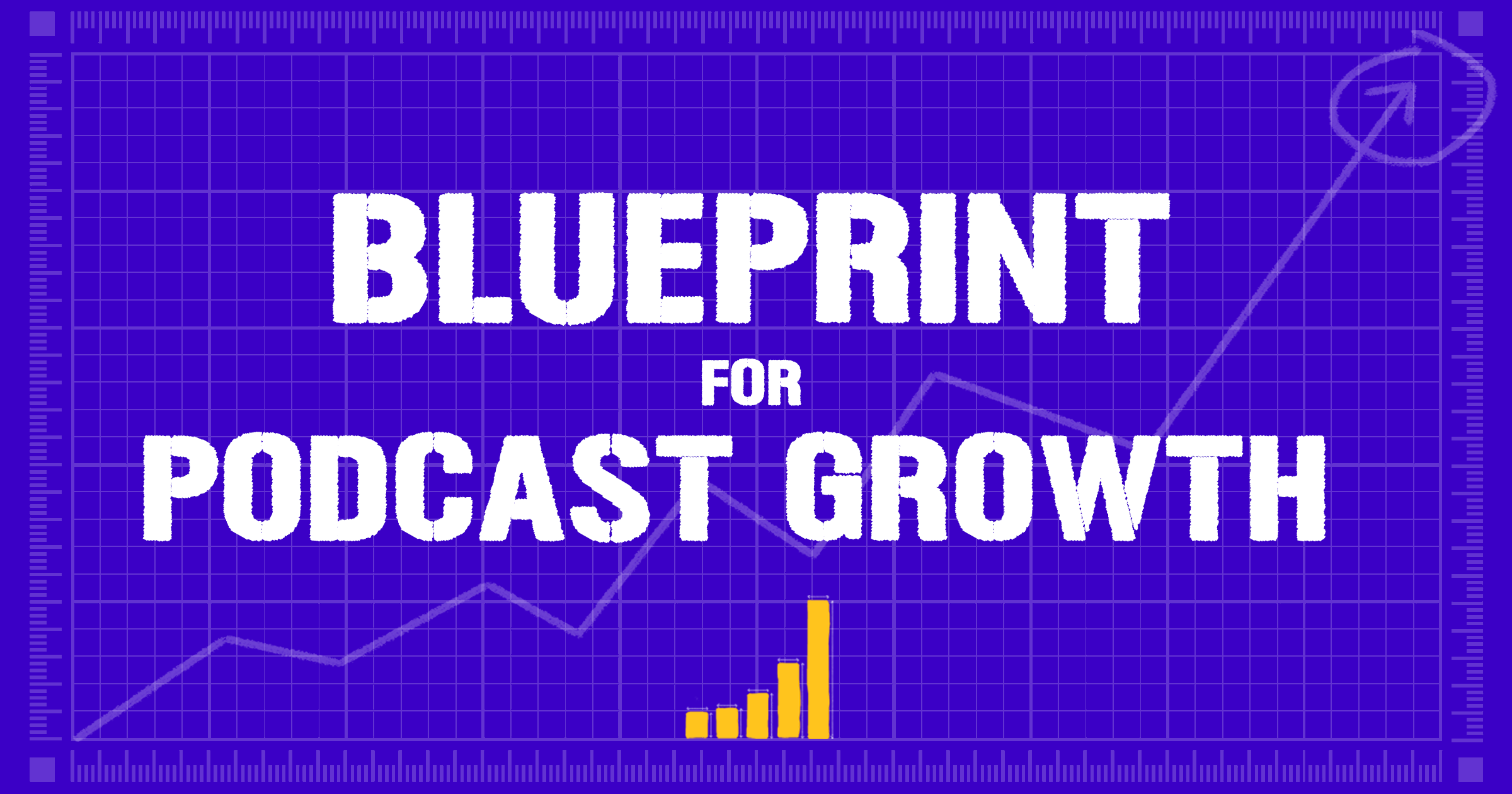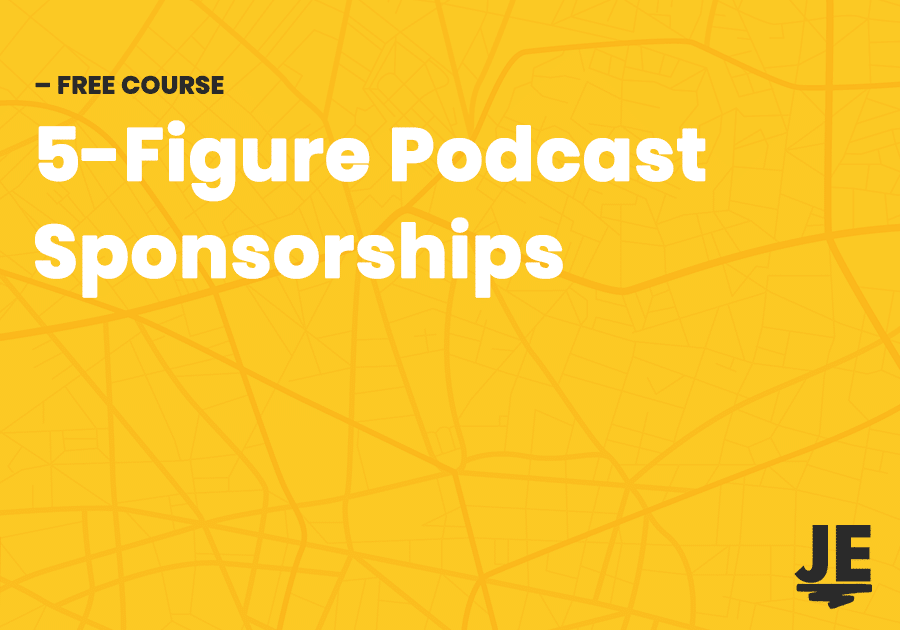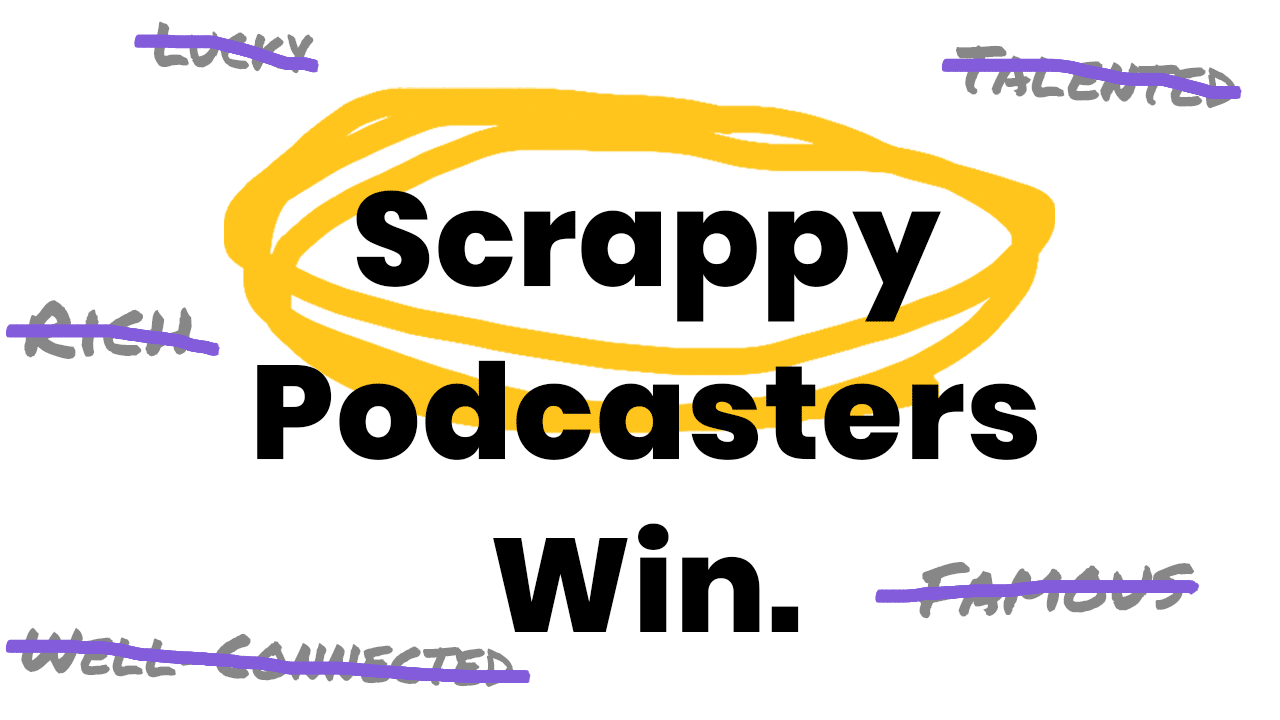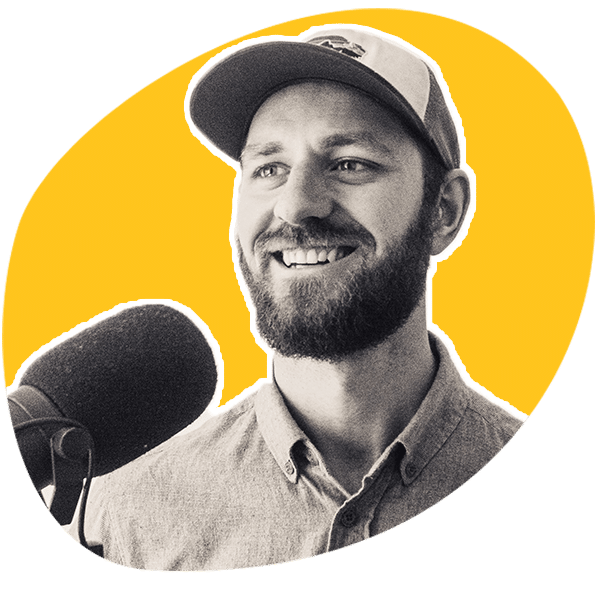A couple of weeks ago I did a poll in the Cut The Bullshit Podcast Community and asked the following question:
“If you were to boil down everything you’ve learned in your podcast journey so far into one word, what would it be?”
Any guesses on what the most popular answers were?
The overwhelming most popular answers were two words more or less describing the same concept.
Persistence, and Perseverance.
Now, this didn’t come as a huge surprise to me, and if you’ve been podcasting for a while it probably doesn’t come as much of a surprise to you either.
The thing that struck me, however, was the fact that if persistence and perseverance were the biggest things people had learned from their podcasts, they must not have anticipated just how tough it would be to get a show going and build an audience when they were first starting out.
In this article, I want to discuss why persistence, perseverance – and we might as well throw a third “P” in there, patience – are essential mindsets to embody while growing your show over time.
But first, a rant*.
* Ohhhh, it’s been a while since I had a good rant on here! I’m excited for this!
What’s The Deal With Fast??
I don’t know about you, but it seems like every online educator and their dog is obsessed with selling us quick-fix solutions.
Over the past couple of weeks, this ad has been following me around telling me I can become a published author in 10 days… I’ve also seen very similar products related to podcasting from a handful of online marketers and influencers.
Now, this ad, in particular, is from a very well known podcaster and online business educator, whom, while I don’t agree with a lot of what they say, still have what you might call a grudging respect for.
But seriously???
Putting out a book in 10 days???
Now I know that this is definitely technically possible, but I seriously question whether any book, podcast, or any other piece of work that moved the needle on anything was ever produced in 10 days…*
* I know someone’s going to have exceptions to prove me wrong. But let’s look beyond the outliers…
The thing that annoys me the most about this and similar offerings (most of which are paid offerings, mind you), is that the people offering them know better.
They know that building a sustainable and fulfilling podcast and associated online business will take weeks, months, and years of hard, dedicated, focused work.
Now, I know the value in setting an ambitious goal and forcing yourself to sit down and do it. But I also know that when it comes to creating something as complex as a podcast, online business, or yes, a book, to create it and then market and promote it in a way that gains traction takes a lot of strategic planning beforehand, and promotional follow through afterward.
With almost every single client I’ve worked with on a launch, we’ve come up with a launch timeline of about 3 months to get everything ready to go for launch day. And that’s a fairly aggressive timeline.
I think one of the problems that these get-rich-quick products create is that they instil this mindset in new podcasters that if they haven’t started gaining a following within the first month or two, podcasting simply isn’t for them or their business, and they give up and move on to the next hip, new marketing strategy (not that podcasting is hip or new…*).
* Let’s be honest, it’s basically like the radio except a free for all… Not hip. Not new…But we love it nonetheless 🙂
So, with that said, let’s get into what I’m going to be referring to as The 3 P’s of Growing Podcasting.
P #1: Patience
Alright, so I’m going to start off with patience here, because I think having the expectation that you’re going to need to work at growing your podcast over the long haul is absolutely essential to growing it at all.
I’ve talked before in another post about a client who launched a high value course through their show, bringing in multiple 6-figures of revenue after podcasting for 6 months.
For this article we’re going to continue the fun we had with last week’s Star Wars-themed article and refer to the two co-hosts of this show as Luke & Han.
I bring this up for a few reasons. First, to point out that these kinds of results are in fact possible for a niche podcast with a relatively small audience. But also because I want to go into the backstory behind the business and that launch, and explain what you’re going to need to learn and apply if you want to see similar results. On that note, I want to state that while these results are doable, 6 months is an amazingly short timeline for that kind of return from a podcast, especially if you’re starting from square one.
Timelines & Expectations
We’re actually going to start with that last point first before looping back to some of the backstory.
I mentioned above that 6 months was an incredibly short span in which to be seeing these types of results. Normally, I would expect it to take a minimum of a year to build an audience to the point where this type of launch was possible.
For reference, this client was putting out a weekly show, so that’s around 26 episodes in at the time they started promoting their course hard.
But think about it.
Most podcasters who give up, never make it to 26 episodes, let alone 15, or even 10.
With every new client, I make sure we have the conversation up front and talk about their commitment to giving the show some runway to build up that following.
Personally, I’d be uncomfortable giving a definitive verdict on whether a podcast is working (or could work), until 50 episodes in.
See, even though Luke & Han had a fantastic product launch, they didn’t really start gaining steam and growing their podcast following until they were into the 40’s of episodes. And even then, there was some soul searching to be done as to whether the podcast was worth the time commitment.
Only now, a little over a year, and 60+ episodes in, has the production workflow been optimized, they’re attracting some big-name guests, their audience is growing fast, and things are falling into place.
But let’s get into some backstory.
Looking Past The Timeline
Alright, so multiple six-figures in six months of podcasting sounds pretty glamorous, right?
Like I said, I used this example to show you it’s possible, but I also want to throw out some caveats.
First off, that multiple six-figures was total revenue. That number doesn’t account for:
- The tens of thousands of dollars they spent on advertising and promotional materials
- My team’s services producing the podcast for those six months
- The investment that went into developing the amazing course, or all of the time, energy and stress that accompanies such an undertaking
- Affiliate payouts
The feat also loses some of it’s veneer when you understand that they partnered with a high profile figure in their industry on the creation and promotion of the course, with that individual taking 50% of the profit, leaving Luke & Han each with 25% of the profits.
Now, it’s important to understand that your first launch is often a stepping stone on the way to more streamlined, efficient, and profitable further launches. So while the end result financially might not have been as lucrative as they had hoped, given the time and financial investment, it was a necessary first step on the way to bigger and better things.
Experience Matters
I also want to point out another crucial caveat to take into consideration when considering how long a runway you’re willing to give your podcast before making a judgement on it’s long-term viability*.
* I want to note that in this case, we’re assuming that your goal is to bring in either a side, or full-time income from your podcast. If that’s not your goal, that’s cool too 🙂
Luke & Han each have over a decade of business experience. While this is their first online business venture driven in large part through content marketing and production, those years of previous experience are invaluable. They contain a huge number of painful lessons that most of us who are just getting into business for the first time with our podcasts have no choice but to learn along the way.
There’s no way around it. This takes time, and is a necessary step we all must take at some point, be that with a podcast or some other venture.
Now, if you’re really tenacious, there’s nothing holding you back from diving in and making all those mistakes (or at least a bunch of them) and learning the hard lessons in your first year. But I’m telling you now, experimentation – most of which will fail – is a necessary part of the journey towards building a brand that an audience can rally around, and this is simply going to take time.
Applying That Experience
If you were to ask me what Luke & Han’s top qualities as podcasters are, that have translated into their podcast success, I’d say it’s their personability, the clarity of their vision for the show, and the fact that they’re fantastic salespeople.
Ew, gross, salespeople?? Podcasts aren’t for selling! That’s icky!
Actually, it’s not. Salespeople are given a bad name by the “used car” variety and similar. But our daily lives are filled to the brim with transactions – both monetary and non-monetary – which means that whether we acknowledge it or not, we’re all salespeople.
Own it.
Alas, this is a topic for another rant… I mean blog… So you’ll have to wait for that one to discover the wonderful world of sales*.
* I know y’all are SUPER excited for that one, so stay tuned. It’s gonna rock your socks off…
Let’s look at the other two traits I mentioned, personability and the clarity of the vision for their show.
At first glance, these might seem unrelated to previous business, but to me, they are actually a result of that previous experience.
In fact, when it comes to the podcast, I’d consider these traits an essential element of their branding and marketing.
Starting to sound a lot more business-like, right?
Let’s look at a quick rundown of some of the business lessons that Luke and Han have internalized and implemented in their show, which have helped make it successful.
- They knew starting out what their brand was. That means that it’s cohesive across multiple platforms, both audio and visual.
- They knew going in who their audience (ie. potential future customers) are, and what type of content would serve them.
- They had a funnel laid out in advance with the podcast’s role in that funnel clearly defined and optimized for that purpose. In this case, that would be building a relationship with their listeners and directing them to their email list and community.
- They understood that they would need to spend some money up front to make money in the long run
- They know the power of community and collaboration
- The knew that all of this would take time, and they gave it that.
Ok, so I could make this list probably 5 times longer, but these are some of the key points.
This Is Way More Encouraging Than It Sounds. I Swear…
I know if you’re an indie podcaster just starting out, this may all be a bit depressing. It probably looks like a mountain with no peak, standing between you and your podcasting dreams.
But consider this. Wouldn’t you rather have a clear view of the summit, the obstacles in your way, and a map from which to navigate, than simply climbing upwards into black clouds hiding the peak from view, with no idea where you’re going, how long it’ll take to get there and what stands in your way?
Whatever your podcasting goals are, building a successful podcast is a lot like (or maybe exactly like) building a business, and many of the skills are interchangeable. By no means do you need to learn everything all at once, or before you ever start podcasting, but you should be making an effort to improve, experiment, make mistakes, and learn as you go along, just like any business owner.
Which brings us to our final P’s.
Perseverance & Persistence
Ok, so as you can tell by the time we spent on the topic, I think patience is an incredibly important trait and mindset to possess when it comes to creating and growing a podcast.
But patience itself is not enough, and in the previous section, we’ve started to touch on what you need to pair with that patience to get to where you’re trying to go.
See, having patience without trying anything new, taking any risks, or making any mistakes isn’t going to get you anywhere. And while you’re out there making mistakes and occasionally looking like a fool, you’re going to need a healthy reserve of perseverance and persistence to keep on getting up and trying again when you fall on your face.
The Myth of the “Big Break”
It’s tempting to think we could break through and build a huge audience “If I could only get this big guest on to promote my show” or “If I could only get featured in New & Noteworthy on iTunes”.
Unfortunately (or perhaps fortunately) that’s just not the way it works.
Take this article by author and podcaster David Kadavy, heartwarmingly titled, Getting Your Podcast Featured On iTunes Is Not Your ‘Big Break, about his experience having his show Love Your Work featured not in New & Noteworthy, but right on the giant iTunes home screen banner.
I highly recommend checking out the whole article, but I’ll give you the spoilers right here.
In the end, being featured on the main banner for one week and a small banner for an additional week earned David a bump of about 5% in his downloads post-feature.
I don’t think any of us would turn down any additional listeners, but 5% is hardly as big a jump as most of us would expect from a major feature like that.
This isn’t the only article I’ve read, or anecdote I’ve heard that reinforces the idea that growing a podcast is a long, slow journey marked by incremental improvements, refinements, and growth.
Taking Control Of Our Podcast Destiny
Again, while the fact that there are few big breaks to be had may seem discouraging at first, I believe the realization to be incredibly empowering. So many of the “big breaks” we fantasize about are reliant upon the whims of others. Making the commitment to continually improve and refine our offering, however, lies entirely within our control.
This is fantastic news.
We had a new member, Chris, join the Cut The Bullshit Podcast Community this past week who shared how when he started his show Talk Nerdy To Me, they averaged 10-12 listeners per episode.
That’s… well… it’s not a lot… Like it could literally hardly be any fewer…
Flash forward to today, four years later (literally to the day), and they’re averaging a few thousand downloads per episode, have a couple of sponsors, as well as diving into growing a Patreon platform to support their show.
How many of us would have seen those stats early on and come to the conclusion that the podcast simply wasn’t worth doing?
I asked Chris about his mindset early on, and the iterations Talk Nerdy To Me has gone through to get to where it is today. Here’s what he had to say.
“When I first started, it’s important to note that the format of the show was totally different. The essence of the show now was there, but I didn’t quite have what I wanted. I was trying what I thought I should do, not what I really envisioned.
The cool thing about all art, whether that be music, video, drawing, painting, sculpting, and podcasting, is that as you’re making something hopefully cool and fun, you’re also learning more about yourself. You’re peeling back these layers of yourself and putting more of yourself – whether you know it or not – into whatever it is you’re making.
So when I first started and saw my listener numbers, it told me what I already knew. It told me that if my goal was to get the greatest number of listeners possible, I wasn’t hitting the mark. And so I sat down after 4 episodes and wrote out goals. Specific goals.
I vividly remember my “1-year goal list”. I wanted to have a real household name celebrity on the show and I wanted to have 500 listeners per show.
From there I asked how. How do I check those boxes off? And I asked a lot of questions, both to third parties and to myself. I have the benefit of a Marketing degree, so I had a good foundation for getting my name out there. I found my niche, and I kept adjusting the show little by little until I got what I wanted and what people wanted to hear.
I never looked at a dozen downloads per episode as a failure, because it happens to almost everyone. Ninety-nine times out of a hundred, the first few episodes of a podcast suck. They just do. Because the host is finding their groove, and judging download numbers that early on is an easy way to feel so defeated. So I never looked at it like a failure, it was just a challenge for me to overcome.”
I also asked Chris how he viewed the show’s achievements looking back and seeing where they had come from and where they are now, with thousands of listeners, sponsors, and a budding Patreon audience.
“I have this attitude where I don’t let myself get too comfortable. I very rarely pat myself on the back and am always looking forward.
So now I have a “Fourth Year Goals” list, and it’s bigger than last year’s list because I don’t want to feel like I’m done growing. I never want to feel like that’s it.
Every year we take a two-week break at the end of December, where we take stock of what worked last year, what didn’t work last year, what just needs some polish, and what we can introduce going forward. We make sure we ALWAYS try at least 5 new things every year. Maybe it’s a new way to promote, maybe it’s going live, maybe it’s specific segments, guests, or something like that. It’s all trial and error, and not everything works, but maybe we stumble into something great!
So the long answer to that question is, I am insanely proud of how far the little show I started literally four years ago today has come.
It’s insane to think I’m on a first name basis with Grammy winners and A-list actors thanks to that show. It hasn’t always been easy, and I will be the first to admit there were times it felt like it was just easier and better to give up. But what’s the fun in that?
The old cliche of “you get out what you put in” is so true. It’s never lost on me how insane it is to think that a few thousand people each week listen to me ramble on about movies, games, people who don’t clean the snow and ice off their cars, and whatever else comes to mind. I just try not to dwell on it too long!”
Well, That’s A Mic Drop
Ok, so first off, congrats on all the success Chris and the rest of Talk Nerdy To Me, and thanks so much for sharing some of the story behind the show!
Secondly, I don’t really have much to add after that. I had no idea what Chris’ answer was going to be when I reached out with a couple of questions, and he basically just demonstrated all of my thoughts on the mindset and approach it takes to grow a podcast.
I don’t really know what else to add after he stole my thunder like that. So I’m just going to invite you to come hang out in the Cut The Bullshit Podcast Community and get to know Chris and all the other awesome podcasters yourself! See ya inside!
I’d love to hear a bit about your podcast journey! Where you started, where you are now, and what you’ve learned along the way. Lemme know in the comments yo!
- Why Wouldn’t They Just Google It? - March 14, 2021
- Before You Can Market Your Podcast, You Need To Create A Marketable Podcast - March 11, 2021
- Podcast Promotion & Marketing Are Different (Here’s How to Use Each Effectively) - March 10, 2021
